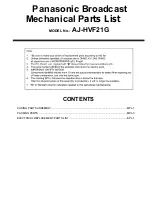
16 Standard RS-485 Communication
16.1 Speciications for standard RS-485 communications
Speciication
Contents
Transmission method
Half duplex
Synchronous system
Start-stop synchronization
Baud rate
Can be selected from 1 200 bps, 2 400 bps, 4 800 bps, 9 600
bps, 19 200 bps and 38 400 bps
Data bit length
Can be selected from 7 bit and 8 bit
Parity bit
Can be selected from No parity, Even parity and Odd parity
Stop bit
Can be selected from 1 bit and 2 bit
Terminator
Can be selected from CR+LF and CR
Transmission data
ASCII code
Cable length
About 1 km
Address
Can be selected from [0] to [31]
Number of connected
units
32 units maximum (1 unit in stream mode)
Note:
Standard RS-485 communication and ModBus communication cannot be linked with
optional RS-232C communication, RS-422 communication or RS-485 communication.
16.2 Data format
Refer to Chapter
for the data format.
16.3 Standard RS-485 communication settings
16.3.1
Operation mode
The standard RS-485 communication operation mode is selected by function F-47.
The operation mode can be selected from [Command mode], [Stream mode],
[Synchronized with inish], [Synchronized with accumulation signal], [Synchronized with
print signal] and [Modbus].
The default is [Command mode], refer to Chapter
for more information.
1
Command mode
Data is sent back from CSD-903 to the host according to the command/data sent
toCSD-903 by the host (personal computer, sequencer, etc.).
2 Stream mode
When RS-485 is used, this mode continues to output the latest data of the output
target selected by function F-47.
Note that output frequency depends on the baud rate setting.
16 Standard RS-485 Communication
Weight indicator CSD-903
Minebea Intec
EN-133
Summary of Contents for CSD-903
Page 243: ......
















































